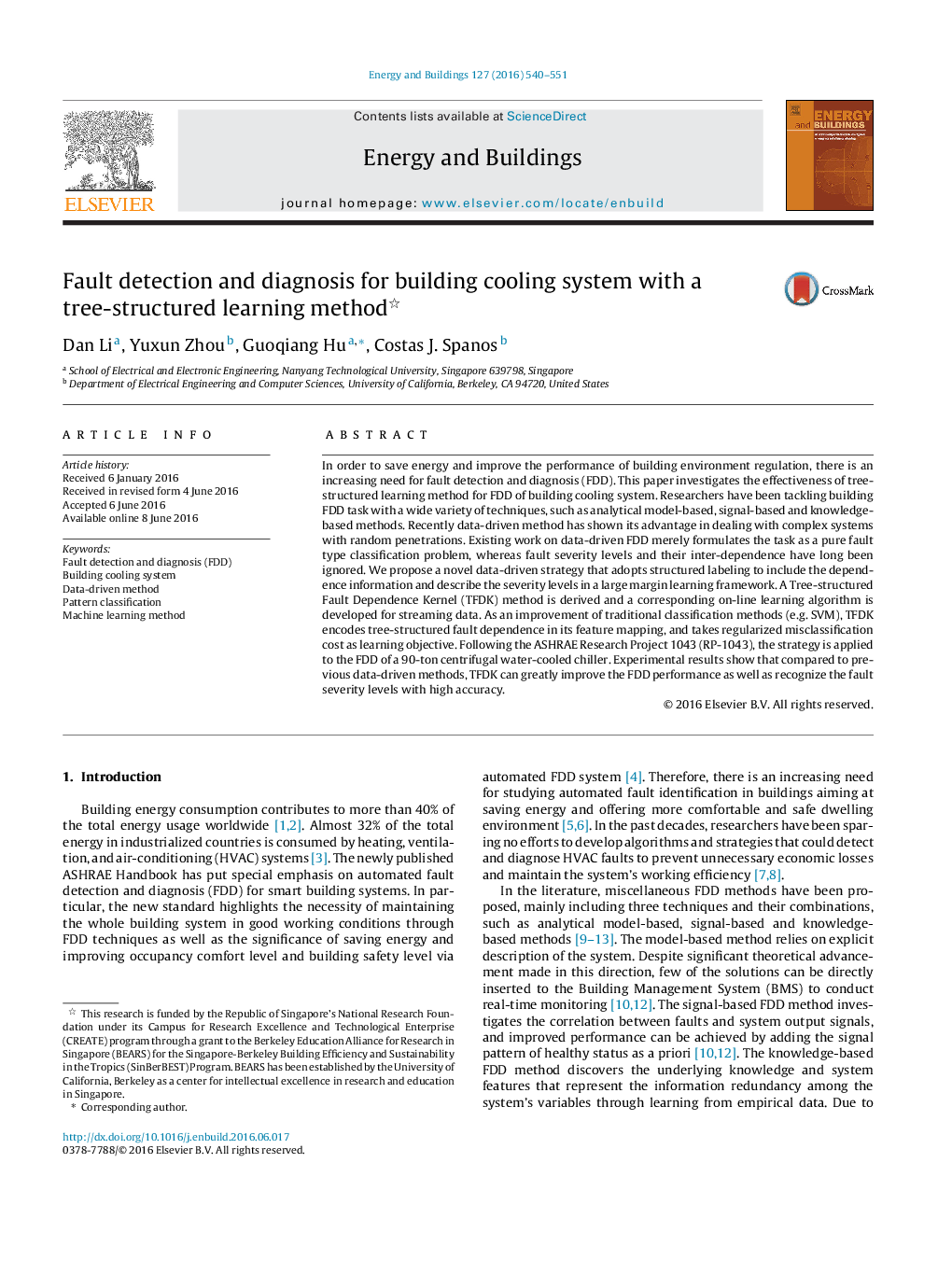| کد مقاله | کد نشریه | سال انتشار | مقاله انگلیسی | نسخه تمام متن |
|---|---|---|---|---|
| 262004 | 504007 | 2016 | 12 صفحه PDF | دانلود رایگان |
• A TFDK method is derived to make use of the fault dependence information.
• Chiller fault detection and diagnosis task is formulated as a multiple-class classification problem.
• Detailed information about the building performance is provided by identifying fault severity levels.
• Higher FDD accuracy can be achieved by the devised method compared with other methods.
In order to save energy and improve the performance of building environment regulation, there is an increasing need for fault detection and diagnosis (FDD). This paper investigates the effectiveness of tree-structured learning method for FDD of building cooling system. Researchers have been tackling building FDD task with a wide variety of techniques, such as analytical model-based, signal-based and knowledge-based methods. Recently data-driven method has shown its advantage in dealing with complex systems with random penetrations. Existing work on data-driven FDD merely formulates the task as a pure fault type classification problem, whereas fault severity levels and their inter-dependence have long been ignored. We propose a novel data-driven strategy that adopts structured labeling to include the dependence information and describe the severity levels in a large margin learning framework. A Tree-structured Fault Dependence Kernel (TFDK) method is derived and a corresponding on-line learning algorithm is developed for streaming data. As an improvement of traditional classification methods (e.g. SVM), TFDK encodes tree-structured fault dependence in its feature mapping, and takes regularized misclassification cost as learning objective. Following the ASHRAE Research Project 1043 (RP-1043), the strategy is applied to the FDD of a 90-ton centrifugal water-cooled chiller. Experimental results show that compared to previous data-driven methods, TFDK can greatly improve the FDD performance as well as recognize the fault severity levels with high accuracy.
Journal: Energy and Buildings - Volume 127, 1 September 2016, Pages 540–551
